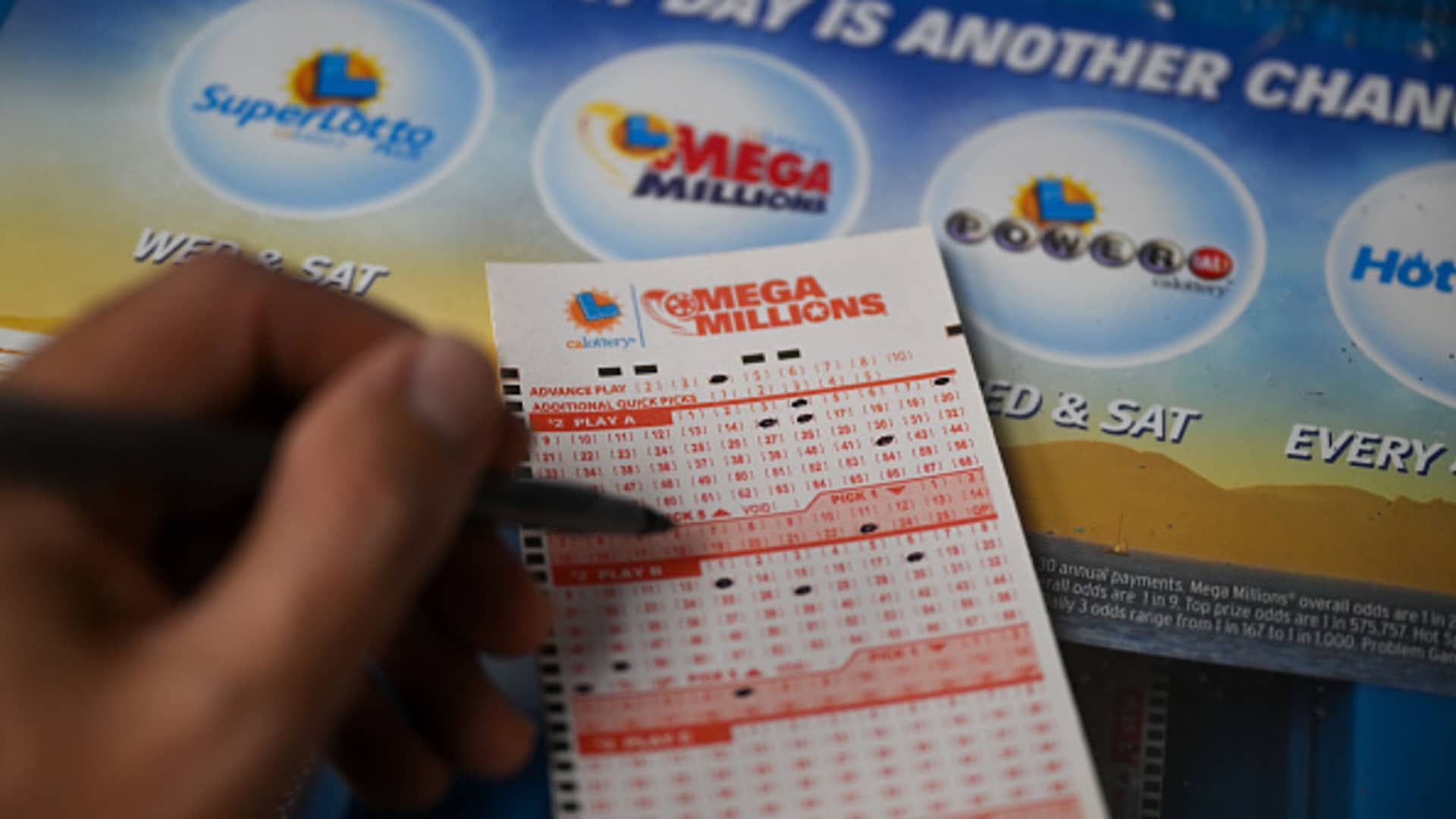The Mega Millions jackpot has grown to an estimated $910 million, with the next high-stakes drawing on Friday at 11:00 p.m. ET.
The big prize has only exceeded $1 billion four times, most recently reaching the milestone in January, according to Mega Millions.
However, the windfall will be significantly smaller after the taxman takes its share of the winnings.
If you’re lucky enough to score the winning six numbers, there are two options for the payout: a lump sum of $464.2 million or 30 years of annuitized payments worth $910 million. Both choices are pretax estimates.
However, the lump sum may be better because you can maximize the prize by investing the proceeds sooner, according to certified financial planner and enrolled agent John Loyd, owner at The Wealth Planner in Fort Worth, Texas.
Either way, you’ll need to “have a plan and realize you can run out of money,” he said. Working with a third party may eliminate some of the pressure when it comes to decisions about future gifts or donations.
The chance of hitting the Mega Millions jackpot is roughly 1 in 302 million.
More than $111.4 million goes straight to IRS
Before collecting a dollar of the Mega Millions jackpot, there’s a 24% federal withholding. Winnings above $5,000 require a 24% mandatory upfront federal withholding that goes straight to the IRS.
If you opt for the $464.28 million cash option, the 24% withholding automatically reduces your prize by more than $111.4 million.
However, the 24% withholding won’t cover the entire tax bill because the prize pushes the winner into the 37% tax bracket, Loyd said.
Here’s how federal taxes work
The multi-million dollar Mega Millions jackpot bumps the winner into the top federal income tax bracket, which is currently 37%. However, that doesn’t mean they’ll pay 37% on the entire windfall.
For 2023, the 37% rate applies to taxable income of $578,126 or more for single filers and $693,751 or higher for couples filing together. You calculate taxable income by subtracting the greater of the standard or itemized deductions from your adjusted gross income.
Single lottery winners will pay $174,238.25, plus 37% of the amount over $578,125. But for couples filing jointly, the total owed is $186,601.50, plus 37% of the amount above $693,750.
The 24% federal withholding will cover a sizable chunk of taxes owed, but the final bill could represent millions more, depending on the winner’s tax mitigation strategies and other factors.
You may also be on the hook for state taxes, depending on where you live and where you bought the ticket. Some states don’t tax lottery winnings or don’t have income taxes, but others may levy above 10% in the top bracket.
